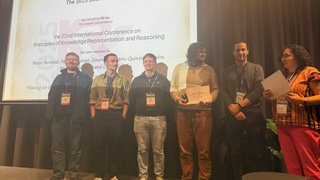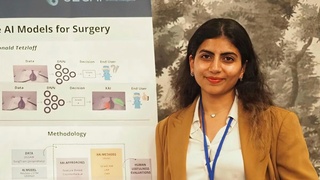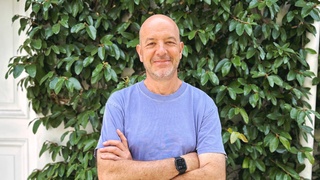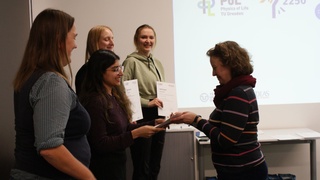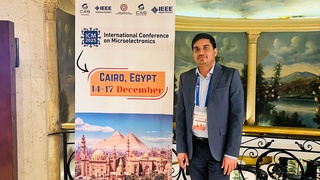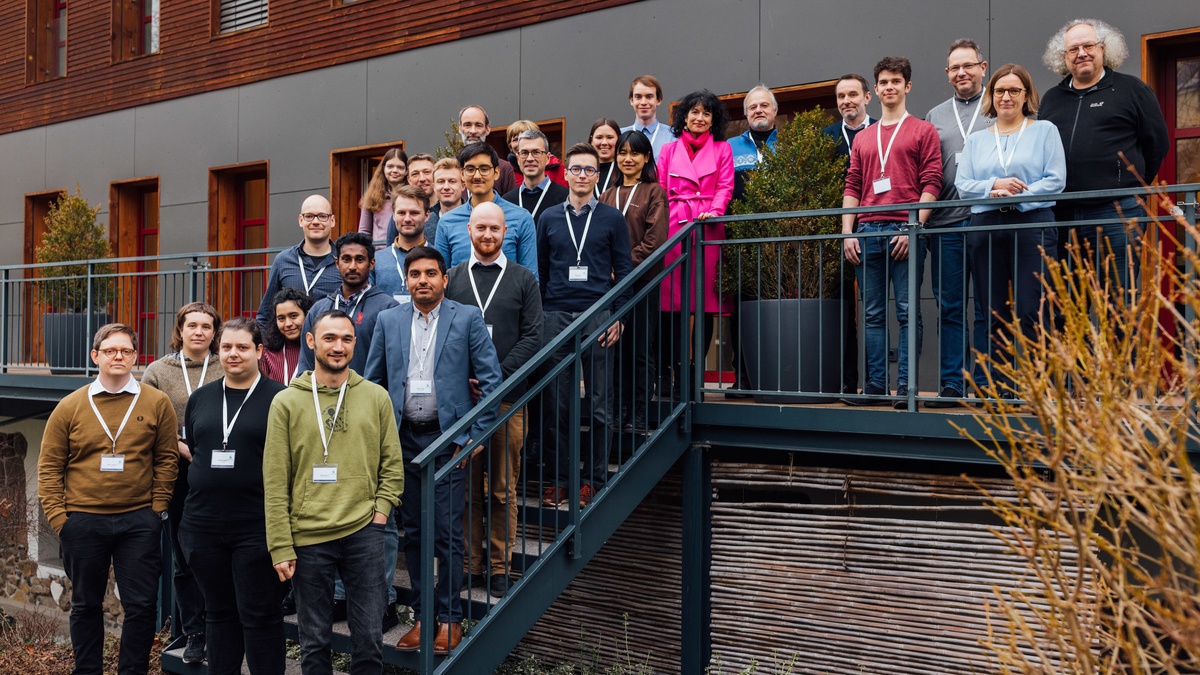 Photographer: Christian Hüller
Photographer: Christian Hüller
January 26, 2023
SECAI Welcomes the First Researchers of Its Graduate School
With the beginning of the new year, SECAI as one of the three Konrad Zuse Schools of Excellence in Artificial Intelligence extends a warm welcome to its first junior researchers. During the next years, their AI-related research in the areas of computer science, microelectronics, and medicine will lead to new insights and approaches. The expertise of the doctoral students and clinician scientists covers a broad spectrum: the development of novel AI methods that combine advantages of hitherto disparate approaches (“composite”), and the integration of AI algorithms into tailor-made microelectronics and intelligent devices (“embedded”). For example, doctoral student Deianira Fejzaj will contribute on how to transfer mechanisms of the human brain into microelectronic devices.
On Thursday, 26. January 2023, the thirteen new doctoral students and clinician scientists gathered in Leipzig together with the Academic Fellows and scholarship holders to get to know each other and to initiate collaborations. The scientific highlights were presentations by Academic Fellows: e.g., Martin Bogdan gave a talk on “Brain-Computer-Interface: From Stroke Rehabilitation to Consciousness Detection” where he introduced the participants to research by him and his team. They combine AI algorithms and medical devices to improve the recovery of patients after a stroke and detect and understand consciousness, especially of patients with locked-in syndrome. Thus, the talk shows how important the combination of the research areas of SECAI is: in this case the combination of medicine, computer science and ethics. In addition to the scientific talks, the participants could experience the whole spectrum of both the people involved in and research areas covered by SECAI: the School combines five research areas as well as the research institutes TU Dresden, Leipzig University and EKFZ, thereby leading to an international team with both a broad and deep expertise.
“The challenge of Artificial Intelligence is that it always requires the combination of a lot of ideas and technology,” says SECAI director Markus Krötzsch. “To appear intelligent, the algorithms, data, and hardware of system must interoperate well with each other. In SECAI we want therefore to gather people who research AI from very different viewpoints and do not fear to pursue new avenues instead of following the mainstream.” Hence, this year’s kick-off can be considered a complete success. “We have an impressive spectrum of talents and skills, as well as a lot of ideas for joint research already,” Krötzsch appreciates.
“Machine Learning (ML) and Artificial Intelligence (AI) are an essential part of bioinformatics and life science in general. However, ML and AI applications face unique challenges in this area: from both a technological point of view, especially regarding availability and complexity of data, and an ethical point of view, especially regarding medical data,” Peter Stadler, SECAI co-director and professor for bioinformatics at Leipzig University, adds. In Leipzig, one of SECAI main emphases is AI research in the context of life science and personalized medicine. “SECAI offers us the unique opportunity to systematically train highly qualified specialists, especially for this critical area,” Stadler emphasizes with regard to the new doctoral students and clinician scientists.
